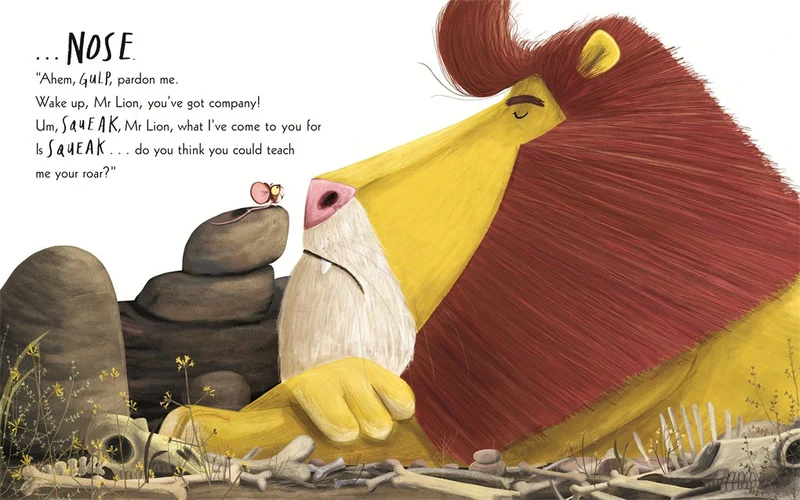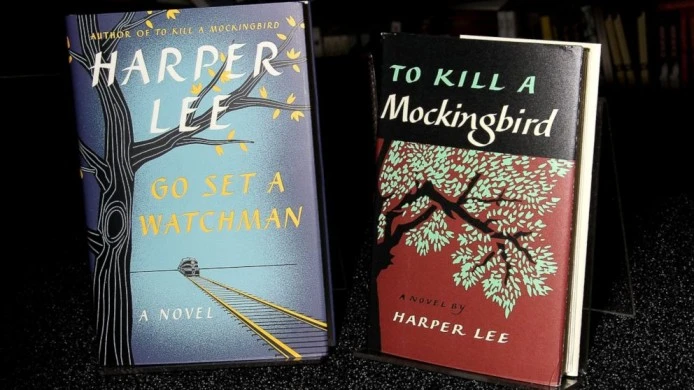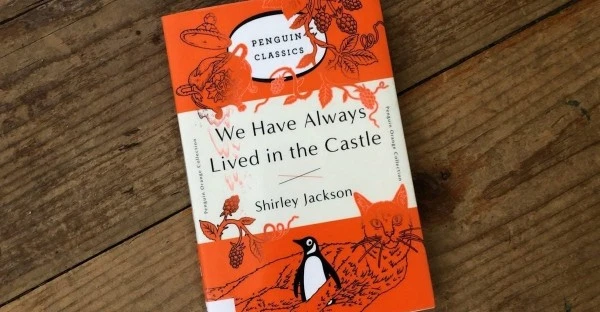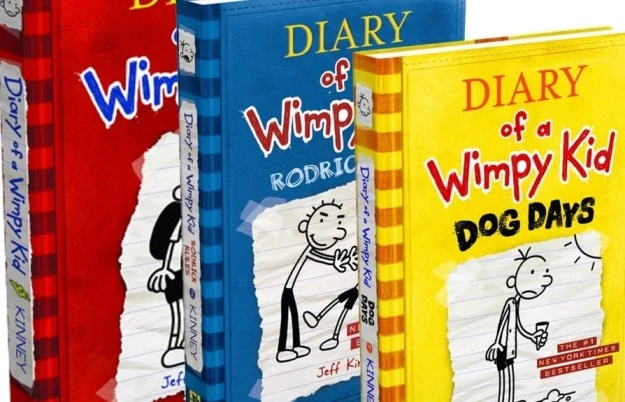Afterland, by Lauren Beukes: An Excerpt
1.
COLE: NAMING RIGHTS
June 21, 2023
“Look at me,” Cole says. “Hey.” Checking Miles’s pupils, which are still huge. Shock and fear and the drugs working their way out of his system. Scrambling to remember her first-aid training. Checklist as life buoy. He’s able to focus, to speak without slurring. He was groggy in the car, getting away. But soon he’ll be capable of asking difficult questions she is not ready to answer. About the blood on her shirt, for example.
“Hey,” she says again, keeping her voice as even as she can. But she’s shaky too, with the comedown of adrenaline. Seeing Billie hauling his body like a broken punching bag, thinking he was dead. But he’s not. He’s alive. Her son is alive, and she needs to hold it together. “It’s going to be all right,” she says. “I love you.”
“Love you too,” he manages. An automatic call-and-response, like an invocation in church. Except their cathedral is an abandoned gas station restroom, where the rows of empty stalls gape like broken teeth in the predawn light, toilet seats long since wrenched off by vandals.
[ Return to the review of “Afterland.” ]
Miles is still shaking, his thin arms wrapped around his rib cage, shoulders hunched, teeth clicking like castanets, and his eyes keep jerking back to the door, which has been kicked in before this, judging by the scuffs and dents in the plywood. She, too, is expecting that door to burst open. It feels inevitable that they’ll be found and dragged back. She’ll be arrested. Miles will be taken away. In America, they steal kids from their parents. This was true even before all this.
In the shards of mirror, her skin tone is gray. She looks terrible. She looks old. Worse, she looks scared. Cole doesn’t want him to see that. Maybe that’s what superheroes are concealing behind the masks: not their secret identities, but the fact that they’re scared shitless.
The glassy blue tiles above the sink are broken into mosaic, the pipe half-wrenched from its mooring. But when she opens the faucet, it creaks and groans and water sputters out.
This is not blind luck. She spotted the water tank on the roof of the looted gas station store before she slid the car around the back and under the tattered shade cloth. Devon was always the organizer in the family, the planner, but she has learned to live thirty seconds ahead of wherever they are, calculating all the possible trajectories. It’s exhausting. “Live in the moment” was always a philosophy of luxury. And damn you, Devon, Cole thinks, for dying with the rest and leaving me to do this on my own.
Two years later and you’re still mad, boo?
She still hears her dead husband’s teasing voice in her head. Her own homemade haunting. Lot of that going around these days.
Better hope your sister doesn’t join the ghost chorus.
She splashes her face to banish the thought of Billie, the sickening sound of metal against bone. The cold water is a shock. The good kind. Clarifying. She can feel all the guilt in the world later. Once they’re out of here. Once they’re safe. She peels off her bloody shirt, stuffs it into one of the sanitary bins. It’s seen worse gore than this.
The mirror is a fragment of its former self, and in the reflection, the light glancing off the tiles makes her son’s skin look beige. Coffee with too much cream. What did Billie give him? Benzos? Sleeping pills? She wishes she knew. She hopes the drugs were the kind that induce amnesia, like wiping an Etch-A-Sketch clean.
She rubs his back to warm him up, calm him down: both of them needing human contact. She knows him so well. The dent of his MMR vaccination, the white twist of a scar that runs up from his elbow, from when he broke his arm falling off the top bunk, the movie-star notch on his chin, which he gets from her dad (rest in peace, old man, she thinks on autopilot, because she didn’t get to say goodbye). And somewhere deep inside Miles, the errant genes the virus couldn’t latch onto.
One in a million. No, that’s not right. One of the million left in America. The rest of the world has more than that, but barely. Less than a one percent survival rate. Which makes all this so dangerous, so stupid. Like she had another choice.
Holy living boys, Batman. Gotta catch ’em all! And keep ’em, forever and ever. Future security, the Male Protection Act, for their own good, they keep telling her. Always “for their own good.” God, she’s so fucked.
“Okay,” she says, trying to be cheerful, the resolve like lead in her gut. “Let’s get you into clean clothes.”
Cole digs through the black sports bag that was in the trunk of their getaway car, along with water, a jerry can of gasoline—all your basic fugitive essentials—and pulls out a clean sweatshirt for her, and for him, a dusky pink long-sleeved tee with a faded palm tree overlaid with bedazzled studs, skinny jeans with too many zips, and a handful of sparkly barrettes. What are little girls made of? Unicorns and kittens and all things that glitter.
“I can’t wear that,” Miles rouses to protest. “No way, Mom!” “Buddy, I’m not fooling.” She was always bad cop in the family,
setting rules and boundaries as if parenting wasn’t the worst game of improv ever. “Pretend it’s trick or treat,” she says, pinning the barrettes into his afro curls. She remembers the workshop she dutifully attended when he was a toddler— White Moms: Black Hair.
“I’m too old for that.”
Is he? He’s only eleven, no, twelve, she corrects herself. Almost thirteen. Next month. Can it have been that long since the end of the world? Time dilates and blurs.
“Acting, then. Or con artists.”
“Con artists — that’s cool,” he concedes. She takes a step back, evaluates the look. The slogan picked out in pink glitter over the faded palm tree design reads “It’s How We Do” and “California.” Except the W has come off so it reads “ho” instead of “how,” or maybe that was intentional, even in the twelve-to fourteen-year-old section. The slim-fit jeans make his legs look even more gangly than usual. He’s shot up, that gawky phase of being all limbs. When did that happen?
She checks Devon’s watch, too big on her wrist and it’s hard to read the numbers between the constellations engraved on the face. An astronomical anniversary gift. Engraved on the back: “all the time in the universe with you,” except that turned out to be a big fat lie.
I mean, I would have preferred not to die horribly of man plague. Just saying.
Focus. The numerals. Six oh three in the morning. Forty-eight minutes since she found Billie hauling Miles, his slumped body, into the back of the Lada. Forty-eight minutes since she picked up the tire iron.
Don’t think about it.
Yeah, okay, Dev. Ain’t nobody got time for that.
The SUV was exactly where it was supposed to be, in the parking lot of the nearby deserted mall, where their abandoned getaway car would blend in with all the other forlorn vehicles. She and Billie had gone over the plan again and again. She was so impressed by her sister’s foresight, the attention to detail. Bust out, switch cars, drive to San Francisco. The keys were under the hubcap, gas tank filled, supplies in a lockbox under the back seat: water, change of clothing, first-aid kit.
Cole did it all on autopilot, wired and dumb with terror, covered in blood. Except she drove the SUV in the opposite direction than the one they’d planned, away from the coast and Billie’s rich benefactors who had set up the whole thing, inland, toward the desert. The route less traveled, less obvious, less likely to lead them straight into a waiting roadblock and women with machine guns.
Racking up the felony charges over here. They’ll take him away from her— for good this time— arrest her, throw away the key, or worse. Is the death penalty a thing again in the current climate, what with the Reprohibition Accord to preserve life? Reckless endangerment of a male citizen is probably the worst crime. Worse even than what happened with Billie back there. Forty-eight, no, forty-nine minutes ago. She was so angry, so scared.
I never liked that sister of yours.
“Mom?” Miles says in the smallest voice, reeling her back from the memory, from going full panic stations.
“Sorry, tiger. I got lost there for a moment.” She holds his shoulders, admires his reflection. Tries to smile. “Looking good.”
“Really?” Sarcasm is healthy. Higher functioning. Not brain-damaged.
“You don’t have to like it. But this is who you have to be right now. You’re Mila.”
He flutters his thick eyelashes, purses his lips at the mirror. The duckface of contempt. “Mila.” She should get mascara, Cole thinks, distracted. Add it to the list. Food, money, gas, shelter, probably another car, keep switching them up, and then they can hit up the local Sephora for all the girly cosmetics a boy in drag could require.
“Wash your hands, you don’t want to get sick.” “I’m immune, remember?”
“Tell that to all the other viruses out there. Wash your hands, tiger.”
When she cracks open the dented door to the outside world, there are no drones, no choppers, no sirens, no women in Kevlar with semiautomatics surrounding the perimeter. They haven’t found them— yet— and the SUV is still parked where she left it, under the shade cloth, ready to go.
“All clear.” She hustles him toward the car. Sorry, her. Get it right.
She can’t afford to make a mistake. Any more mistakes.
Miles clambers into the vehicle obediently. She’s so grateful that he’s going with the flow, not asking questions (yet), because she’ll break if he does.
“You should lie down,” Cole says. “They’ll be looking for two people.”
“But where are we going, Mom?”
“Home.” The idea is ridiculous. Thousands of miles, whole oceans and now multiple felonies between them and ever seeing Johannesburg again. “But we gotta lay low in the meantime.” She says it for her own benefit as much as his. Hers.
“On the run. Like outlaws,” her daughter says, trying to rally. “Even better than conartists! Cowgirl Cole and Mila the Kid.” “Isn’t it ‘Billie the Kid’? Won’t she be mad I took her name?” “You’re holding onto it till she catches up to us. Think of it as joint custody.”
“That’s not how names work.”
“Hey, last I checked, end of the world means normal rules don’t apply.” Levity as defense mechanism: discuss.
“Mom, where is Billie? I don’t remember what happened.” Shit.
“She got in a fight with one of the guards when we were leaving.” Too glib. She can’t look at him. Sorry, her. “That’s why my shirt was messed up. But don’t worry! She’s fine. She’s going to catch up with us, okay?”
“Okay,” Mila says, frowning. And it’s not. Not really. But it’s what they’ve got.
They peel away from the gas station. The sky over Napa is a pastel blue with dry paintbrush swipes of cloud over vineyards run wild. Pale fields of grass twitch and shiver in the wind. These things make the fact of a murder distant and unseemly. Beauty allows for plausible deniability. Maybe that’s beauty’s entire function in the world, Cole thinks: that you can blind yourself with it.
[ Return to the review of “Afterland.” ]




